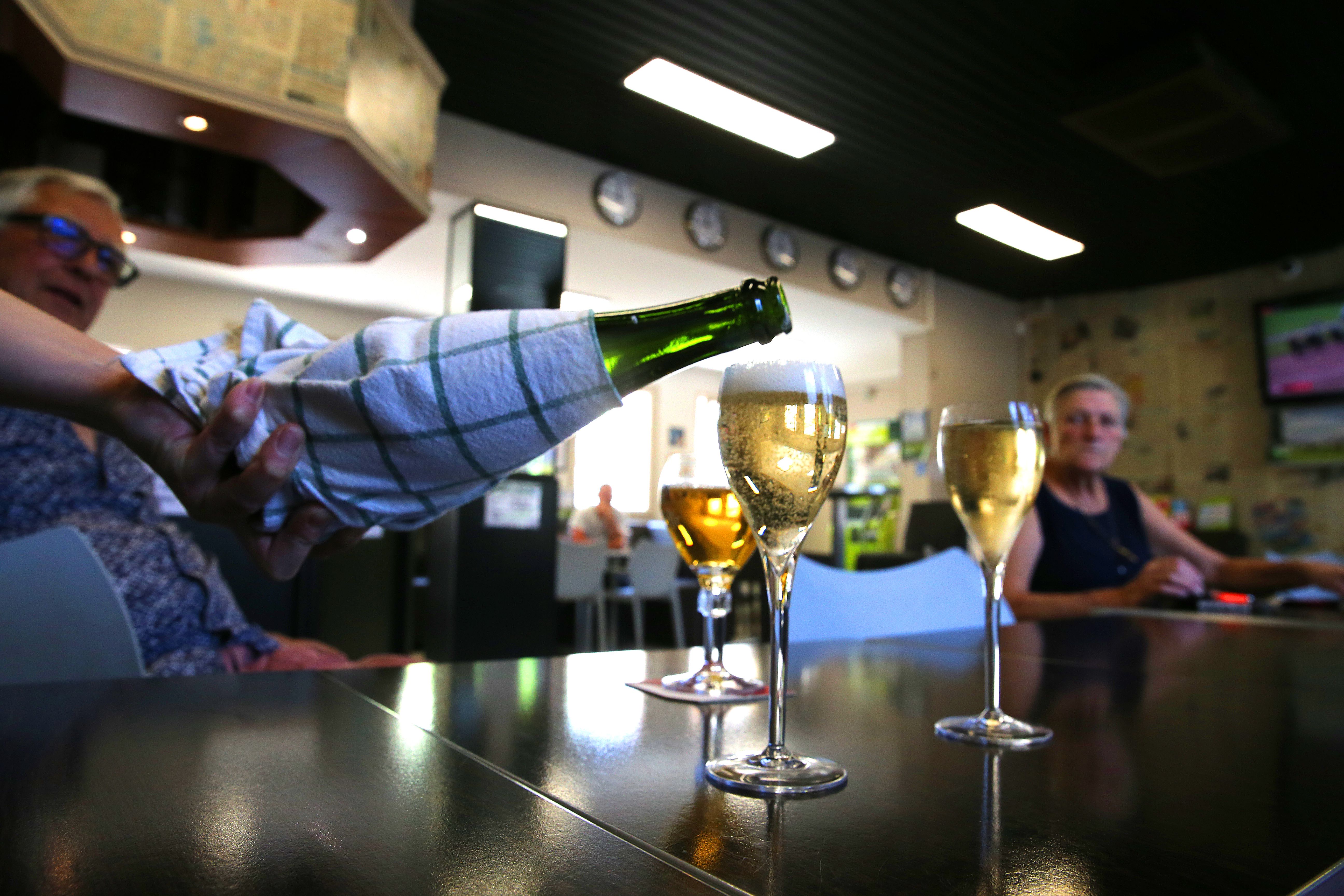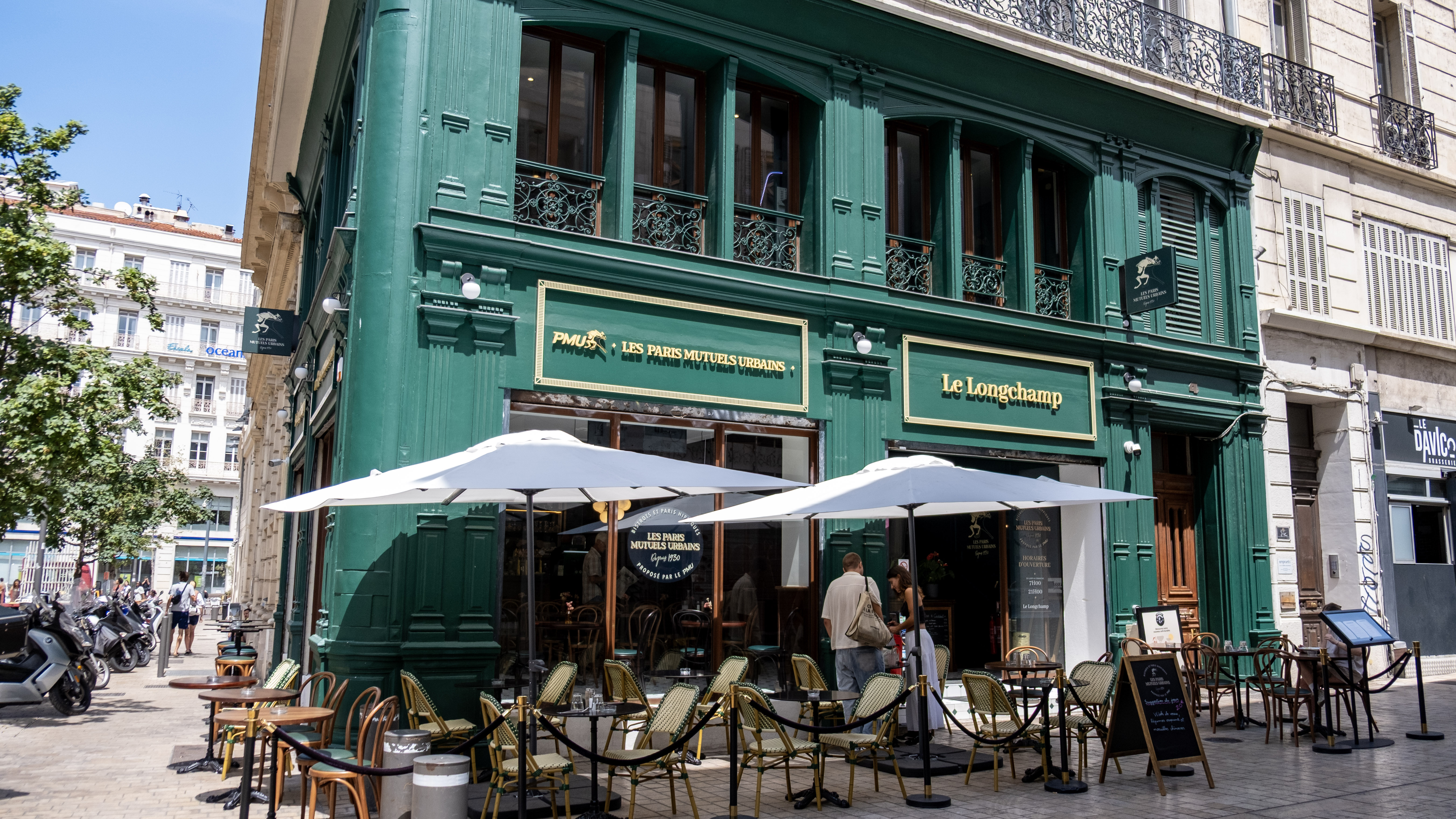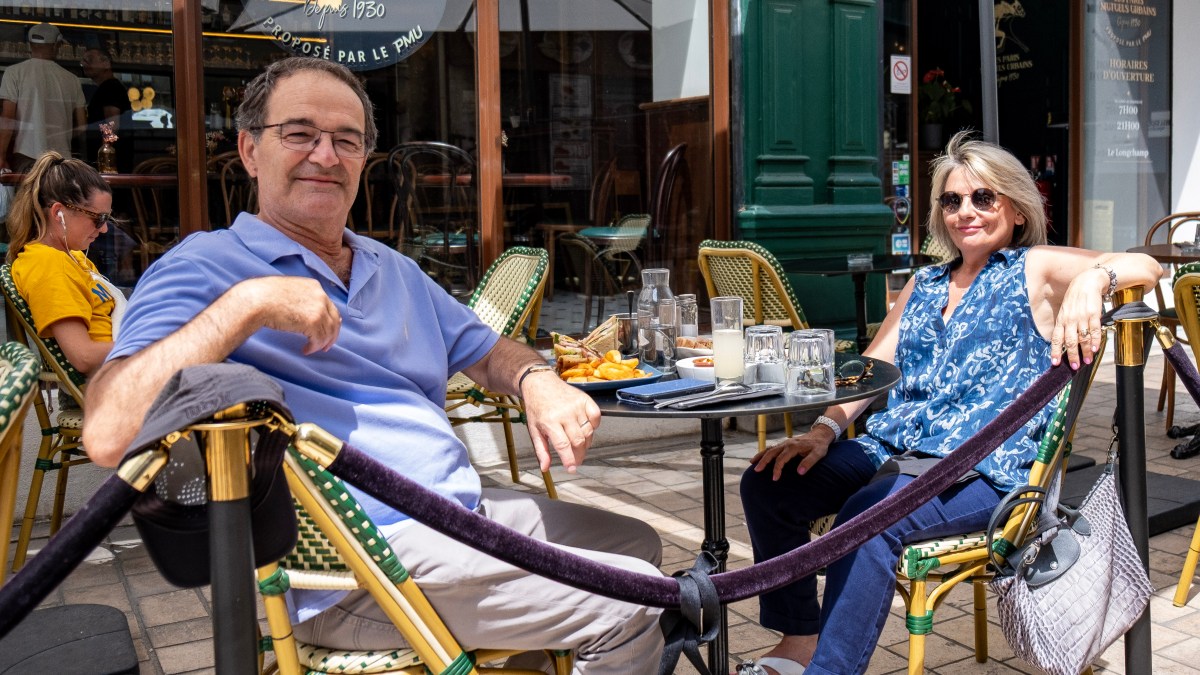The neighbourhood PMU bar has long been the closest thing France has to the pub, albeit with zinc countertops, old men scribbling on slips of paper and horse racing forever on the TV.
But just like the many pubs that now serve food worthy of a fine restaurant, the PMU is getting a makeover. The national organisation that runs betting on horses is going after a young generation that is increasingly addicted to gambling on football instead.
For almost a century, individual bar-café owners have held licences to host betting counters run by the Pari Mutuel Urbain, a monopoly created by the state to control betting on horses. The resulting mix of drinking, eating, smoking, gossip and gambling is part of everyday life: there are 14,000 PMUs, identified by their green, red and white signs beside the door. “In the French imagination, we say ‘PMU’ for neighbourhood café,” said Paul-Henry Bizon, editor of the book PMU: the 100 Bars That Make France.
Practically every Frenchman or woman knows that behind that sign they can get une pinte (50cl) for as little as €5, a coffee for €1.50 and have a flutter on the horses while they are at it. Crucially, the atmosphere and décor will have barely changed since the 1930s.

Traditional PMUs in Reims and, below, Marseille
FRANCOIS NASCIMBENI/AFP/GETTY IMAGES

RICHARD ASSHETON FOR THE SUNDAY TIMES
But now dozens of new PMUs are opening around the country that are almost unrecognisable. Gone are the zinc and croque monsieurs. In their place are stained wood and octopus salad. The bars are owned and run by PMU executives, who are trying to undo damage they did a decade ago when they opened a series of branches with no drinks or food, or apparently atmosphere. They proved unpopular.
“The idea was to make them betting houses. But that turned the best of the PMU into the worst,” Sylvain Dominé, director of the company’s commercial network, said. “Because you only had people locked into horse-racing betting.”
That was far from the case one Wednesday lunchtime when I visited Marseille’s posh new PMU, which opened in March. In the hour I spent at Le Longchamp, which is named after the famous racecourse on the edge of Paris, no one obviously placed a bet. The place looks like a smart brasserie, if you ignore the big screens and betting terminals.

Does Le Longchamp look like a betting shop to you?
RICHARD ASSHETON FOR THE SUNDAY TIMES
“We like to come here and have a coffee or something to eat,” said Didier Delmarès, 66, a local government official from Corsica who was sitting on the terrace with his wife Albertini, picking at seafood. The couple have been several times on their frequent visits to the city. “It’s got nothing to do with it being a PMU.” Neither went to PMUs before this one opened, they said, looking faintly embarrassed to be asked.
France has always been circumspect towards gambling, much more so than Britain. Casinos are mostly restricted to seaside resorts and online gambling was only legalised in 2010. Betting on horses has a longer history. It began in the decades before the Revolution when, in a mood of anglophilia under Louis XVI, rich landlords copied their English counterparts by galloping over the countryside and taking bets.
After a ban by Napoleon, the restored king, Charles X, encouraged formal races. “Bookmaker” entered the French dictionary from English in the 1870s. In 1891, the new French parliament acted against rampant corruption and odds rigging in other betting by banning all forms apart from pool betting on horses. In the 1930s it created the PMU, an association of race organisers, granting it a monopoly to run off-site betting on horses, paying tax and putting the remaining profits back into the sport.
Barkeepers won PMU licences and their establishments became woven into France’s social fabric. PMUs open from about 6am to 10pm, doing gentle business throughout the day.
“It’s a very Latin way of life, very French, which has disappeared a bit,” Bizon said. “In Marseille maybe it survives more, but Paris has been very ‘Anglo-Saxonised’ in terms of opening hours … In the provinces, in little villages, lots of things have closed. The PMU is now one of the only things open.”
Originally from the countryside near Nantes, Bizon, 46, an author of several books, moved to Paris 25 years ago, and would regularly start the day chatting over a coffee among workers, café staff and gamblers. He worries that the tradition is dying as cities become more expensive and more French people live “in silos”.
The PMU faces growing competition for gambling revenue. Since France legalised online sports betting in 2010, under pressure from the EU, foreign companies have flooded the market. Last year, sports betting operators took €10.3 billion in stakes, compared with €6.6 billion for the PMU.
The young are ever more hooked, prompting President Macron’s government into measures such as imposing a 15 per cent tax on sports betting adverts. Football is the most popular sport, followed by tennis, basketball and rugby. A third of online sports gamblers are aged 18 to 24, but only one in ten horse-racing bettors is that age.
“For the young it’s football — horses don’t interest them,” said Mohammed, 66, in a busy traditional PMU down the road from the Longchamp, where no one wanted to give their full name. Mohammed has been betting on the horses for 30 years. “Look around, is there a young person?”
Another man, Abderrahmane, said he was not proud of his habit. “It’s like a drug. It’s like cocaine in disguise,” he said. He had won €20 that morning, but by early afternoon had lost it all, he said. He makes sure he only leaves home with one 10 or 20-euro note, otherwise he would spend more.
Last year an anonymous man won €2.5 million euros on a two-euro bet at a PMU in Marignane near Marseille — he had guessed the first five horses to finish a race in Deauville, in order — but most bettors lose.
The PMU has opened 13 revamped branches so far and plans to run 150. It says it wants to tap into a growing spirit of affection for the PMU bar, particularly among the young.
But some are drawn to its retro spirit already. Hipster bars known as “neo-PMUs” are appearing in Paris: they are not PMUs but intentionally look like them, and serve 1970s fare such as sausage and mash. PMU-branded ashtrays and badges are traded on Leboncoin, the French equivalent of eBay.
An events group, Bouledogue (meaning bulldog, chosen because like the PMU it is endearing if not beautiful), throws monthly “PMU parties”. Outdoor tables become beer-pong courts, disco lights go up and DJs play house music for young crowds who have rarely set foot in the bars. Some do bet, but the point is the “authenticity” of the setting, said Valentin Malguy, 31, the group’s founder. “It’s the equivalent of the English pub, but French … I found it touching.”
Bizon said: “I think there’s a kind of nostalgia for the young generation of an era they didn’t know, like the Eighties, when France was doing well.”
